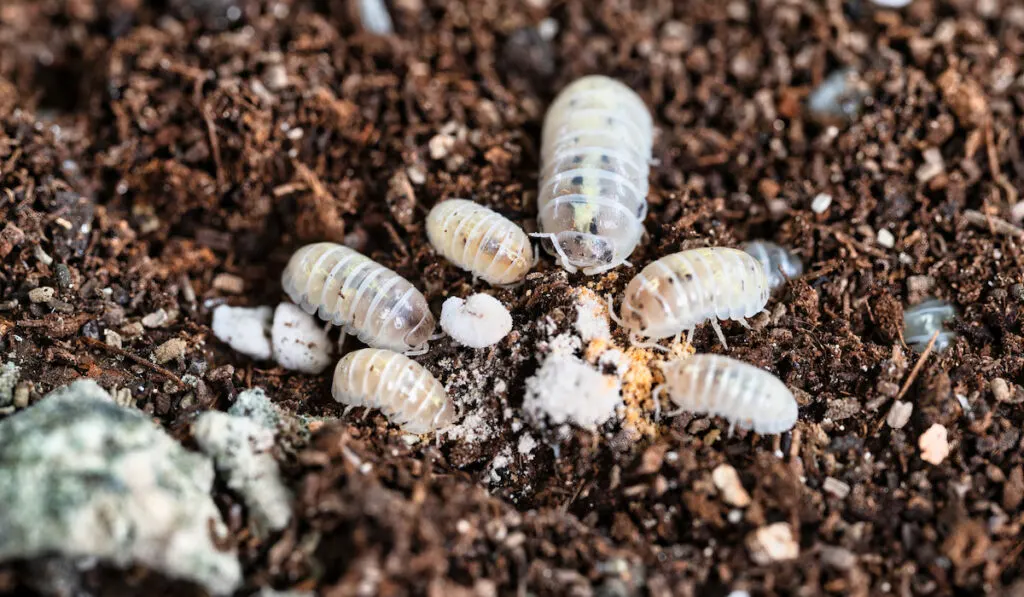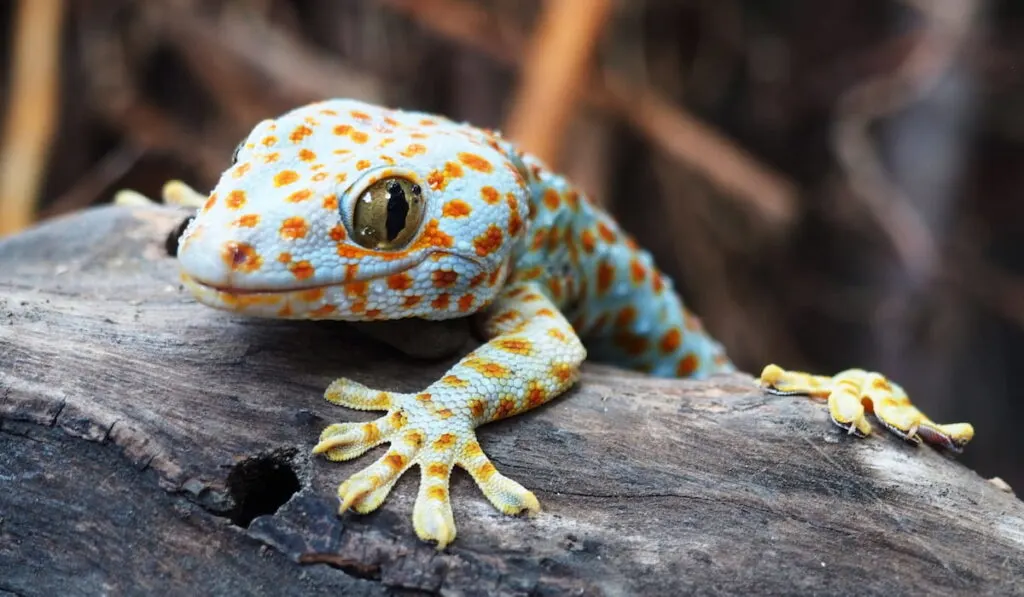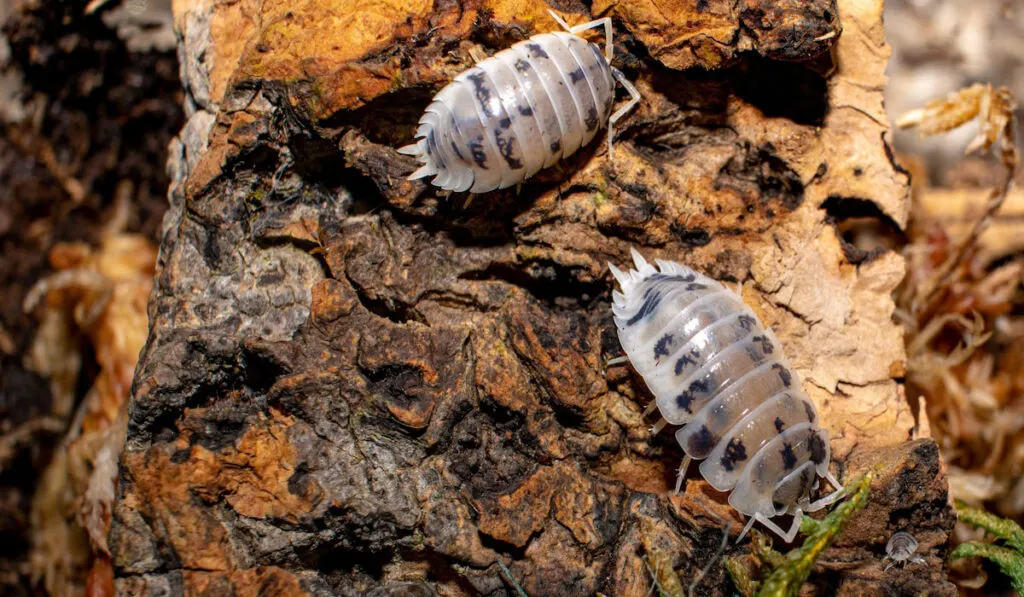Isopods are awesome pets. They do not disturb you and they are very easy to raise.
What other reasons are there to raise isopods? Well, recently, people are feeding their other pets with isopods. Is this possible?
Can you use isopods as feeders for other pets?
Isopods make a great feeder for pets such as reptiles, spiders, and birds. Isopods are rich in nutrients and they make an awesome, cheap, and quality feed for your pets.
What nutrients are isopods rich in? What types of animals can you feed isopods with? We’ll answer these questions and more in this article.

Table of Contents
Can You Use Isopods as Feeders? What You Should Know
Here are some useful things that you should know about using isopods as a feeder.
1. Isopods Are Rich in Calcium
The exoskeleton of isopods is rich in calcium and can help your pets and farm animals to have stronger bones.
It can also encourage egg production in birds. Instead of supplementing your poultry’s diet with eggshells, you can use isopods.
2. They Reproduce Quickly
A mature female isopod can carry up to 200 eggs. Even if you start your isopod habitat with just a few isopods, you can have a huge amount of isopods in no time (so long as you feed them well).
From your surplus isopod population, you can easily collect some to feed your pets and farm animals.
3. Isopods Can Boost Egg Production in Layer Chickens
As you already know, isopods are rich in calcium. They also have a little protein content, so they are beneficial to layer chickens.
Layers produce more eggs when their feed has a lot of calcium and protein content, so supplementing your chicken feed with an isopod meal is highly beneficial for layers.
4. Isopods Are Easy to Raise
Isopods are among the easiest invertebrates to raise. They are almost 100% zero maintenance pets if you can raise them in the right conditions. With proper ventilation, light, and food, you can raise your isopods without a single sweat.
This means that you can easily produce supplemental feed for your farm animals with isopods.
5. Farm Birds Search for Isopods During Free-Range Feeding
Do you know what chickens and other farm birds eat when you allow them to search for their food? They eat all types of objects including isopods.
For chickens and other birds, isopods are a natural diet, so you should not worry about your birds eating strange invertebrates because they eat isopods naturally in the wild.
Now that you know so much about using isopods as feeders, it is time to learn what animals you can feed your isopods to.

Some Animals That You Can Feed with Isopods
Here are some common pets that you can feed with isopods:
- Reptiles: Reptiles such as chameleons, lizards, and geckos love isopods. They will search for and eat as many isopods as they can. Instead of always buying feed for your reptiles, consider feeding them with isopods.
- Amphibians: Just like reptiles, amphibians such as frogs and toads love their isopod meal. You only need to put the isopods in the tank and they’ll take care of the rest.
- Predatory Insects: If you are raising predatory insects such as centipedes and praying mantises, you can feed them with isopods. These insects eat isopods in the wild, so feeding them isopods simply mimics what they are already used to in the wild. Also, isopod meal is best for predatory insects than other types of pets.
- Spiders and Scorpions: If you are raising scorpions or tarantulas, you can supplement their feed with isopods. You should note that even though tarantulas can eat isopods, they may take a while to accept their new type of feed as isopods do not quickly trigger the hunting instincts of tarantulas.
- Giant Snails: You may feel that giant snails are purely herbivorous, but they are not. Snails eat other snails, eggshells, and insects for calcium to develop their shells. Since isopods are calcium-rich, you can give your snails as many isopods as you wan to help them grow larger and stronger shells.
- Birds: Birds love every type of insect and anything with an exoskeleton. Even though isopods are not insects (they are crustaceans), birds love them. Isopods can help your birds to grow stronger bones and also encourage egg production. Only feed your birds with isopod meals as treats and not their full-time meal.
Even if you do not like isopods, there are other types of insects that you can feed your pets with.
Other Recommended Insect Feeders
Here are more insect feeders for your animals and pets:
- Cockroaches: You may not know, but cockroaches are protein-rich and make awesome food for your reptilian and amphibian pets. You should give these pets as many cockroaches as you find. Just make sure that the cockroaches are not dead because of pesticides.
- Mealworms: Mealworm beetles are protein-rich (and also rich in fats). You can use mealworms to feed your farm animals such as birds and pigs. You can also feed your reptiles and amphibians with mealworms.
- Grasshopper: Even though you can raise grasshoppers as insect pets, you can still use them to feed other pets such as praying mantises, reptiles, amphibians, and even birds. Grasshoppers are rich in proteins.
- Waxworm. Waxworms are rich in fats and proteins. Give them to your pets and farm animals as supplemental feed.
- Black Soldier Fly Maggots: These maggots are very common insect feeders as they contain proteins, fats, and fibers. You can use them to raise healthy and large chickens and other birds. You can even culture your black soldier flies yourself.
What insect feeder will you try feeding your animals with?

Related Questions and Answers
1. How Can You Raise and Care for Isopods?
Isopods require minimum care. You do not need to pay much attention to your isopods. You just need to provide them with a tank that has a perforated lid to boost ventilation. Mist their tank regularly to increase the moisture in it and throw in a food particle or two once in a while for them.
You can feed them with anything organic.
The optimum temperature for isopods is 68 to 72°F (20 to 22°C). You should not keep their tank under direct sunlight nor close to any heat source.
2. Can You Keep Isopods and Other Insects in the Same Tank?
You can raise your isopods with other detritivorous insects such as millipedes, springtails, and bessbugs. These insects have almost the same care requirements as isopods, so they can live in the same habitat.
You should never raise your isopods in the same tank as predatory insects such as centipedes and praying mantises. You can only raise them together if you want your isopods to be your predatory insect’s food.
3. Why Is There Mold in Your Isopod Tank?
You may see mold in your isopod tank. The presence of mold indicates that there are too many organic materials in the tank.
It could also signify that the moisture in the tank is too much.
Well, to reduce the presence of mold in the tank, you should increase the tank ventilation, reduce the amount of food you give to your isopods, or increase your isopod population (so that they can quickly consume the food in it).
4. Can Isopods Make Your Animals Sick?
Isopods cannot make your animals sick. Animals search for and eat isopods in the wild and also during free-range feeding.
If your animals are sick, there could be another cause or maybe you fed them with dead isopods (which may have died because of insecticides). Aside from the concern of toxic substances such as insecticides, it is completely safe to feed animals isopods.
5. What Are Other Uses of Isopods?
Isopods have a lot of uses. Some common uses of isopods are:
- They Help Clean Up Pet Tanks: If you introduce isopods into a pet tank, they will eat the humus and decaying organic matter in the soil. Isopods can help reduce the frequency that you need clean your pet tank.
- They Act as Feed for Many Types of Pets: Isopods are calcium-rich feeders for pets.
- Isopods Produce A Nutrient-Rich Substrate For Your Garden: If you have a garden, you can easily enrich your soil with the nutrient-rich substrate of your isopods.
As you can see, there are many good reasons to raise isopods.
Final Thoughts
Yes, you can use isopods as feed for many types of pets and animals. Isopods are rich in calcium and act as good supplemental feed.
Make sure that you give your pets and farm animals plenty of protein-rich feeds.
Sources
- http://www.moonvalleyreptiles.com/nutrition/common-feeder-insects
- https://m.carolina.com/teacher-resources/Interactive/care-guide-terrestrial-isopods/tr10554.tr
- https://www.chameleonforums.com/threads/isopod-feeders.176003/
- https://www.geneseo.edu/~beary/BearyPrimary/Isopod%20care.htm
- https://arachnoboards.com/threads/feeding-isopods-to-slings.325799/
